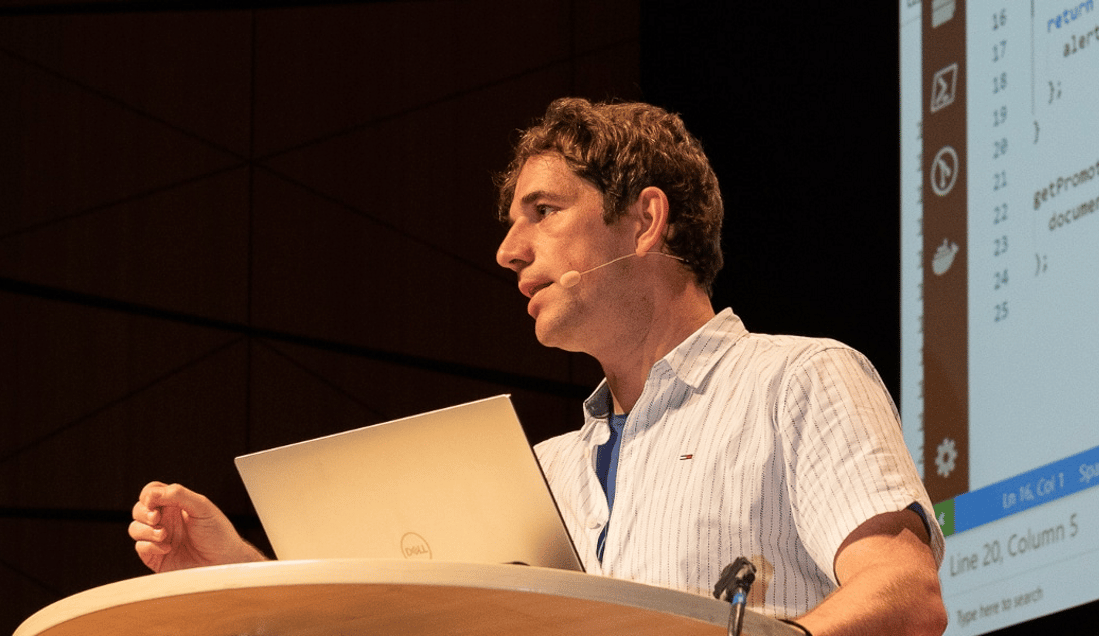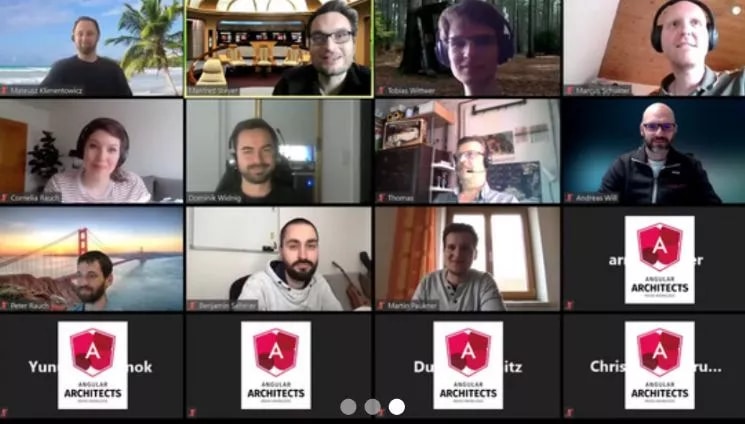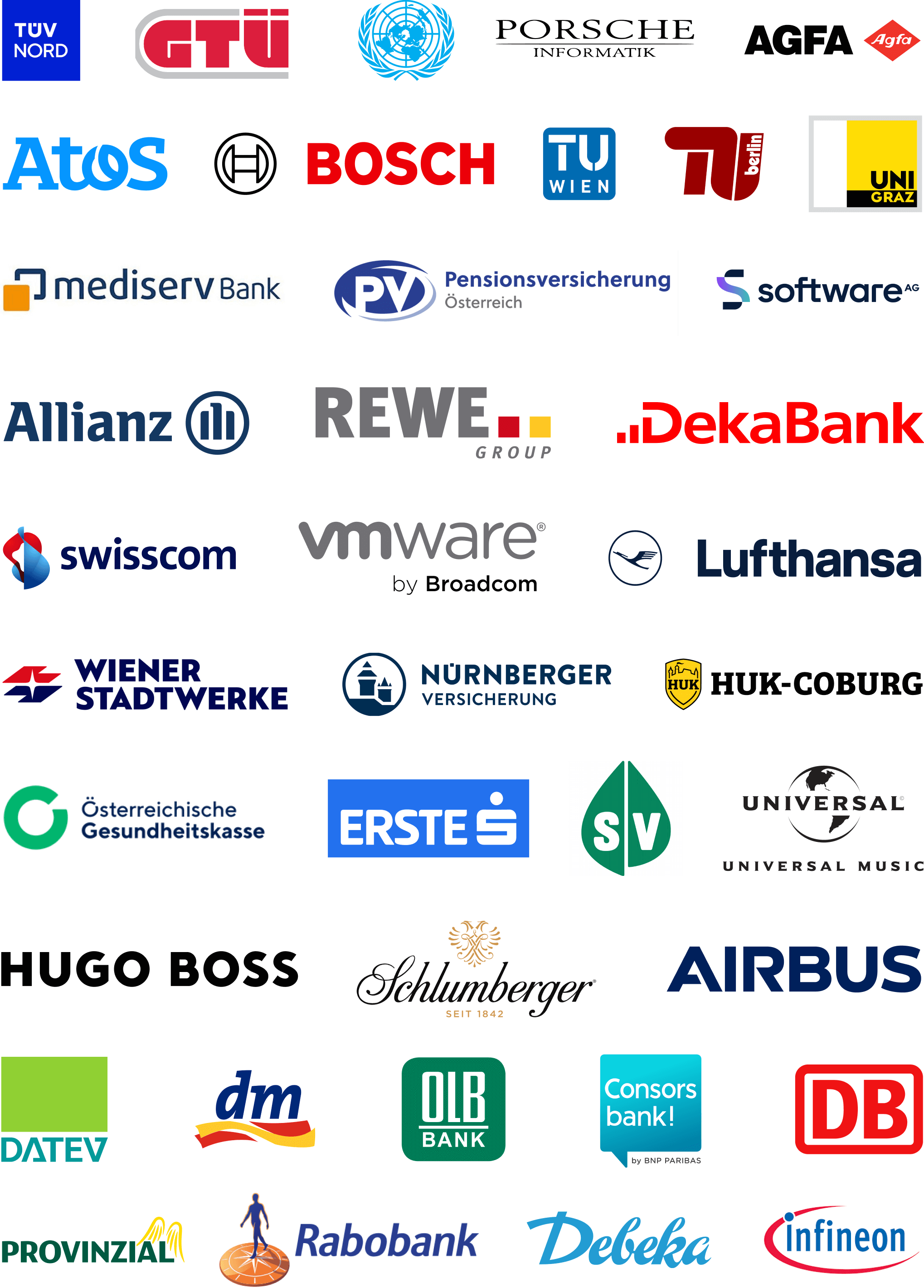
Professional NgRx Signal Store: State Patterns & Best Practices

Rainer Hahnekamp, GDE
Experienced developer, software architect for enterprise applications, GDE for Angular, and NGRX Team Member. He runs Ng-News, a weekly Angular video newslette, speaks at international conferences.
Angular’s reactivity model is evolving with Signals — a powerful and opinionated approach to managing local state and reactivity. But as applications grow, Signals alone are not enough.
We need standardization, utility functions, and tooling that support both local and global state management at scale.
Welcome SignalStore!
Built on top of Angular Signals, the SignalStore offers a consistent and scalable solution for managing application state. It comes with a composable feature system that allows you to extend and customize the store to match your specific needs.
This workshop will take you through the entire SignalStore journey — from foundational concepts to advanced customizations and architectural integration.
What You Will Learn
✅ Understanding the need for Signals and how they simplify Angular’s reactivity
✅ Using the SignalStore for standardized, signal-based state management
✅ Creating your own custom features — even for complex or non-standard scenarios
✅ Integrating the SignalStore into your architecture for maintainability and scalability
✅ Testing your SignalStore effectively to ensure stability and long-term confidence


Agenda
Part 1: Understanding Signals
- Why Signals? Core motivations and principles
- Core APIs: signal(), computed(), effect() — usage and best practices
- Advanced APIs: linkedSignal(), resource(), rxResource(), httpResource()
- Comparing Signals and RxJS — when to use which
Part 2: Using the SignalStore
- Creating a SignalStore: Setup and structure
- Reactive methods: signalMethod, rxMethod — practical use cases
- Global state management features: encapsulation, override protection, protected state
- Using extensions: withEntities and others
- Best practices for maintainable stores
Part 3: Creating Custom Extensions
- When and why to extend the store
- Using signalStoreFeature() as a base for custom features
- Building features with input constraints
- Advanced patterns using withFeature()
Part 4: Testing the SignalStore
- Testing the SignalStore in isolation
- Writing integration tests
- Mocking the SignalStore for testing consumers
Part 5: Integrating the SignalStore into Your Architecture
- Identifying the right architectural placement
- Managing dependencies via Dependency Injection
- Using event-based (Redux) architecture with the events extension
- Applying Ports & Adapters for decoupled design
Part 6: What About the NgRx Global Store?
- Understanding the differences between the Global Store and SignalStore
- Understanding the role of the Global Store in the world of the SignalStore
- Migration Strategies
- Using both in co-existence
Part 7: Deep Diving into Advanced Extensions
- Understanding the internals of SignalStore composition
- Creating features beyond signalStoreFeature()
- Managing lifecycle hooks and teardown logic
- Coordinating cross-feature behavior and supporting dynamic configuration
Part 8: Exploring the Future of SignalStore
- Combining SignalStore with Angular Query
- Making effective use of linkedSignal()
- Integrating resource() and similar APIs directly into your store design
Upcoming events
Reviews
I also appreciated the concrete examples of how to implement DDD in folder and files structures.
Individual In-House Company Workshops
All of our workshops are also available remotely or in-house at any time.
Contact us for an appointment
FAQs on our workshops
How do your workshops and courses work?
Our seminars around Angular are a mixture of lecture, live coding and actual exercises. Together we implement what we have learned during the workshop directly on a example project. This mixture guarantees that the course never gets boring and “hands-on” is required instead of gray theory.
Who is the Angular hands-on training designed for?
Our Angular hands-on workshop is aimed at anyone who wants to develop applications with Angular in the future or is already doing so and now wants to better understand the background, context and building blocks of the framework.
Participants should have basic knowledge of web development (basic knowledge of HTML and JavaScript).
For advanced Angular developers we offer advanced seminars and intensive trainings on specific use cases.
Where do the Angular workshops take place?
Our trainings take place as public workshops in seminar rooms at central hotels in Germany, Austria and Switzerland. In-House company workshops take place at your office or conference room.
All courses are also available as remote workshops, where we meet online in a virtual classroom and do the training via video calls, screen sharing and live coding.
Who are the trainers?
Our workshops are held by experienced trainers and software architects. In recent years, we have provided Angular training to well-known companies – including well-known banks, insurance companies, industrial groups. Trainers include well-known conference speakers, authors of books and professional articles, bloggers, Google Developer Experts and university lecturers.
At what times are the training sessions held?
Especially for dedicated company trainings, we are happy to accommodate you. Typical times are 9:00AM to 4:30PM / 5:00PM. Some of our English-language workshops are timed so that you can also attend at US friendly times.
Can we also book online training courses?
Absolutely. In fact, since the pandemic, this has been our main business model and we have had very good experience with it. We use a combination of screen sharing, interactive online whiteboards, and are happy to connect to your computer for support during the exercises if you wish. As with our on-site training, we use a combination of short presentations, discussions, live coding and hands-on labs.
Since there is no travel involved, you also save time and money. We can also respond more flexibly to your scheduling needs.
Can we adapt the training for our purposes?
Yes, very much so. In fact, that’s one of the benefits of dedicated corporate training. You are welcome to weight, shorten or add to our agenda proposals. As a rule, we also coordinate with your trainer about 2 weeks before the training. If you wish, we can also arrange it earlier.
Why Angular?
Among other things, Angular’s wide distribution speaks for itself, but also the fact that Google, an Internet giant that also uses the framework very intensively, is behind it. Google alone has over 2600 solutions based on it. Due to the wide distribution, there is a large community and thus a lot of know-how on the market as well as (free and commercial) products that are adapted to Angular. In addition, Angular provides much of what you need for large applications out of the box: test automation, form management, routing, etc. In this respect, you get a stack whose components are coordinated and work together in the long term.
How do you compensate for different prior knowledge?
The good news up front is that participants with different levels of prior knowledge are the rule, not the exception, in adult education. That’s why you’ll find optional fade-in hints and bonus exercises on our exercise sheets, for those who are a little faster. Of course, we also provide personal support for the exercises.
How many participants are recommended?
If you book a company training with us, we leave this decision to you in principle. However, experience shows that there should not be more than 15 participants, especially since a seminar lives very much from questions, discussions and practical exercises.
What software do we need?
Please install the following software packages on your computer:
– NodeJS in current version (we test with current LTS version).
– Angular CLI (npm i -g @angular/cli)
– Git
– Visual Studio (free) or WebStorm/IntelliJ (commercial)
Selected happy customers






